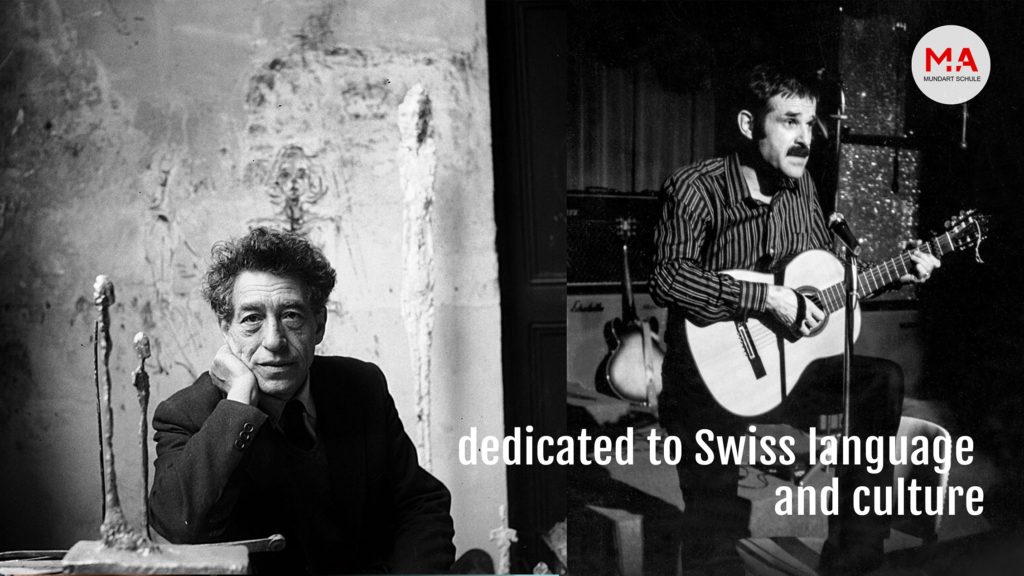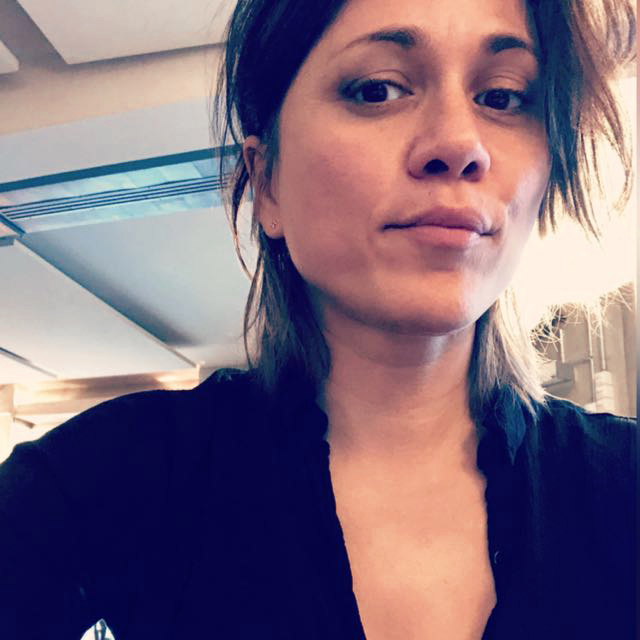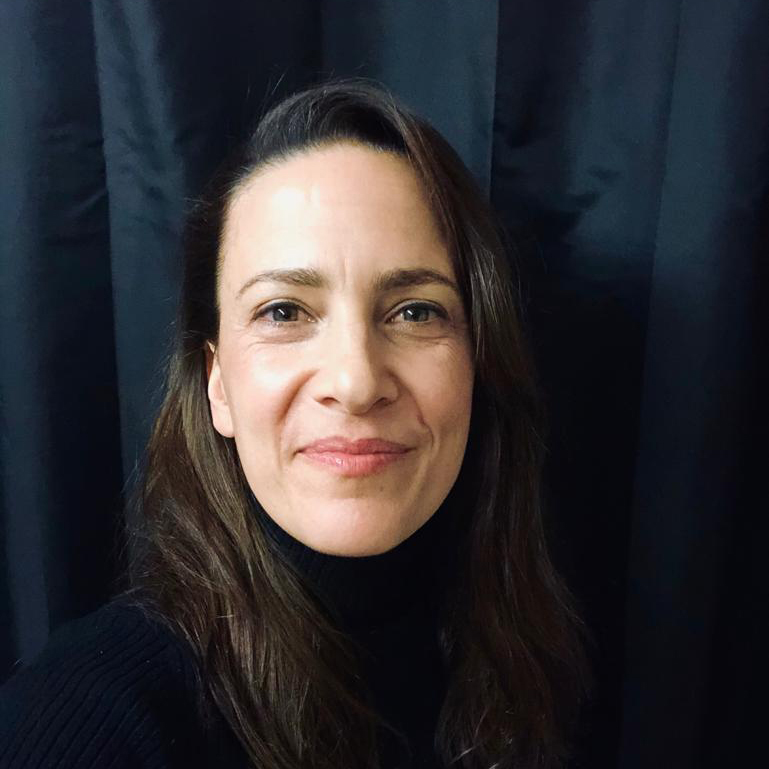
Grüezi mitenand!
We are Mundart Schule. We are a small team of Swiss teachers dedicated to Swiss German language and culture.
Our credo
Everybody can learn Mundart! Our aim is to connect all locals by teaching Mundart language and culture to enhance the feeling of being at home in Switzerland. Teaching updated infos on culture is an essential part of our programs.
Learning Mundart is a lot of fun and worthwhile when based in Switzerland.
Our expertise
We are looking back at more than 15 years of experience in guiding Expats and native German speakers through their first German or Swiss German lesson to their A2, B1, C1… exams and their daily challenges in communication in Switzerland.
Our course concept
German students spend 60-80 hours for each level (A1, A2, B1, etc.) – and get to use their hard earned German skills rarely in daily interaction with Swiss locals.
Looking at the needs of our students and the special circumstances in Switzerland, learning Mundart is worth the effort and requires an exceptional approach.
Optimal lessons for learning Mundart:
Online
As much as we value one-on-one lessons, the benefits of online course and material are convincing: Focused lessons, more flexibility, less cancellations and updated information on every aspect of Swiss culture in our program.
Our Mundart Mediathek provides fresh Media content for each lesson.
90 minutes per lesson
90 minutes are an optimal duration for receptivity and contextual learning success.
Mini group courses
Mini groups of 3-5 create a very good drive and progress in learning Mundart.
However, we have full understanding for working schedules and therefore offer private or half-private groups and flexible course dates.
Our teaching concept
Swiss German is a spoken language without orthography and the mothertongue in the German part of Switzerland. We teach Swiss German as a language of its own and use your German skills as an advantage.
Our concept for our programms and within each lesson contains 3 steps:
STEP 1 :
1. access (understand):
- Turn German skills to Mundart.
- Learn the differences.
- Focus to understand and learn to speak on the way.
- Learn more than words, learn humour, songs and culture.
STEP 2 :
2. consume (feel safe to understand) :
- Use what you learn everyday.
- Consume Swiss Media.
- Feel safe and at home with Schwizerdütsch.
STEP 3 :
3. join (speak) :
- Speaking takes time: Take your time!
- Train to act and react in Mundart.
- Out of all things Mundart is a funny language: Have fun!
Our team

Emel Aykanat

Helena Laurent
Delia Datsomor
FAQ's
There are many myths and unclarities about Swiss German/Mundart!
Check our FAQ, to find useful answers!
Is Swiss German a language or a dialect?
Swiss German (Mundart) is a spoken language but with specific characteristics and rules – both in grammar and vocabulary. For example there is no Präteritum in Swiss German. It may not be considered a full language linguistically due to the lack of orthography. But it is considered the mother tongue in the German part of Switzerland and is essential to Swiss identity and culture.
Which Swiss German will I learn? Züridütsch? St. Galler Dütsch? Berndütsch?...
All Mundart / Swiss German dialects comply in large parts to the specific rules and characteristics. The different dialects give us a hint on which region the person might be from, but are irrelevant to learning Mundart. We teach a neutral Swiss German / Mundart dialect heard, spoken and understood in most cantons.
I heard Swiss people don't even understand eachother. Is it true?
Unless you go to the french borders of Switzerland (for example Wallis) or speak to a mumbling person we understand eachother perfectly fine. Towards the french borders Mundart/SwissGerman adapts more and more to french (u becomes a ü, l turns into u, etc.) You will learn about the most important aspects of it (above all for Berndütsch).
What are the main differences between German and Swiss German?
Besides lingual differences, German is a strict language. Mundart is more flexible. Mundart is also very funny. In Switzerland, German is used mainly for writing and reading. Mundart is the spoken mother tongue.
Do Swiss people learn German/Hochdeutsch?
Yes, we learn proper German in school. Films, books, etc. are mostly in German, we understand German but rarely use it and thus, have to train using proper German in school.
What do we have to learn? Präteritum forms, Relativpronouns, Akkusativ articles, Genitiv, and much more!
Why do many Swiss people switch to English when I speak German?
There is a multitude of reasons for it – and none of them have to do with your German skills. The best reason is: German is not our mother tongue. We use German for official, work- or schoolrelated issues and rarely in private situations. English has many similarities to Mundart. English and Mundart are more flexible (sentence structure, etc.)
How important is it to learn Mundart/Swiss German?
Realistically you get by very well in Switzerland even without German skills. However, we believe you miss out on a lot when based in Switzerland. And we miss out on eachother as Swiss locals.
I heard trying to speak Mundart is not appreciated by Swiss locals. Some think it sounds silly. Is it true? Why?
Let’s be fair on the Swiss (and ignore rude people): Most Swiss are not capable to explain the lingual differences. However, the problem is the word “try”: Using some Mundart/Swiss German words in a German sentence can sound “silly”. Learning the Mundart characteristics and rules will erase the risk. Last but not least: Most Swiss people have a great appreciation and respect towards the effort to be understood in their mother tongue.
Can I learn Mundart/Swiss German without learning German?
Nothing is impossible! But we believe it is necessary to learn German living in Switzerland and strongly recommend it, as almost everything is written in German. Our courses are suitable for people with a minimum B1 Level in German. If you are not sure about your level, please do our placement test!
What are Helvetismen?
Helvetismen are Swiss expressions. They reflect Swiss humour and culture and are essential to our Mundart/Swiss German program. For example: An easy, well paid and fun job is considered “Schoggi-Job” (chocolate job) or a Swiss celebrity is referred to as a “Cervelat-Promi” (a sausage celeb).
Will I speak perfect Swiss German after a Mundart course?
Many of our students have a certain hesitation towards speaking Mundart for its challenging vowels. Many aim to understand and find themselves speaking perfectly. Learning any language is often a question of Godgiven talent. Some people are like sponges and learn a language even without a course! However, we see the same pace in all students when it comes to understanding – and a surprisingly fast pace also in speaking! Your Mundart doesn’t have to be perfect for you to conversate – Mundart is funny and flexible.
Will I understand Mundart perfectly after a Mundart course?
The main goal of our program is for you to understand a conversation in Mundart. Yes, you will understand Mundart.
What is different in Mundart Schule courses to other Swiss German courses?
We are dedicated to Mundart only. We don’t follow language levels (A1, A2, …) for Mundart. We use your German skills (minimum A2+) and turn them to Mundart. Our concept access->consume-> join is customized to the needs of our students and a good base to keep learning from your neighbours, children or even strangers. Updated information about Swiss culture, humour and manners is essential in our courses.
What are the differences between Chuchichäschtli for Expats and Chuchichäschtli Für Dütschi?
Native German speakers often face specific obstacles when learning Mundart. Chuchichäschtli Für Dütschi is tailored to their special needs.
What is the Mundart Mediathek?
The Mundart Mediathek is a folder with an updated selection of Mundart media (TV, links, interviews, broadcasts, music, podcasts, films) fitted to each lesson of your course and suitable to watch after your course. It is an essential part of the 2nd step “consume Mundart (feel safe and at home with Schwizerdütsch, i.e. understand correctly)” of our teaching concept.



Contact
We are looking forward to hear from you!
- Mundart Schule
- 8008 Zürich
- info@mundartschule.com
